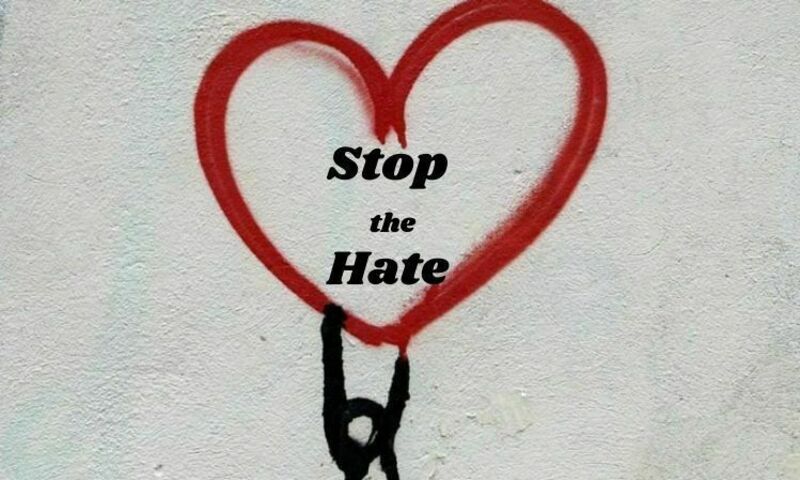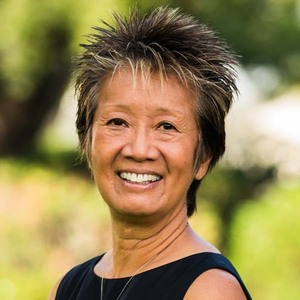The following is the first post in a series on how to stop hate from a biblical perspective. Join The Good Book Blog and Professor of Biblical and Theological Studies Joanne Jung over the coming weeks to reflect on how Christians can work to stop hate. “Hatred stirs up strife, but love covers all offenses.” — Proverbs 10:12 ESV
San Francisco. Atlanta. New York City. From coast to coast, incidents of racism and racial violence continue to impact our country’s landscape, yet most of these incidents will go underreported by both news outlets and victims. The tragic injury and loss of life cuts deep. Fear is real, contagious and seeps into the raw crevices of the soul.
I weep and lament as I yearn for justice, change and transformation. To lament is to say, “I’m hurting, the enemy is winning, and God, where are you? Don’t you care?” I know he does — I’m just looking for evidence. So, I remain present in the heaviness while I fluctuate between courage and fear. It is in this place where I consider not just recent events, but incidents where I am appalled by what Asian people do to other Asian people and others of color, what Black people do to other Black people and others of color, what people of color do to White people and what White people do to people of color, and what Christians do to other Christians. Essentially, what people do to other people.
There have been various kinds of protests and rallies in recent weeks that seek to address the rise in the number of hate crimes against Asian people, and these raise awareness from within and throughout our communities. Awareness is good and necessary, and yet, a pastor friend of mine who is African-American shared the one outstanding lingering, after-event question “What now?” that remains after protests. I ask, What now, God? How can I move from fear to hope? How can I be part of what you want and are doing?
Counterfeit Control
The COVID-19 pandemic forced us to see how little control we really have over our lives. This lack of control produces fear that can compel us to grasp for counterfeit control. This year, we’ve seen this in the form of outrage, cancel culture, bullying, hurling insults, slander, blaming, unforgiveness, victimization, blame-shifting, abuse (whether physical, emotional, mental or spiritual) and demeaning speech. As with any counterfeit, it pretends. Counterfeits pretend to offer real meaning and purpose in our lives, but instead rob us of the freedom of living in a true reality. We settle for pretense and charades.
Not only are these counterfeits, but they are also expressions of hate. In God’s eyes, even belittling speech toward another is murder (Matt 5:21-22). God set the bar and it’s high. Derogatory words that take aim at another’s inferiority or inadequacies are regarded as sinful and hateful. Hate and murder begin in the heart. Our outward expressions reveal what lurks within. The hatred that causes one person to exercise counterfeit control is the same hatred that causes another to murder. As COVID-19 subsides and a sense of normalcy returns, our weakness for counterfeit control as a substitute for real power will persist, perhaps with greater intensity than pre-pandemic times.
As pretenders and expressions of hate, these means of counterfeit control are destructive. Counterfeit control is intoxicating and the longer one adheres to it, the more damaging it becomes. Its “me-generated” self-centeredness mars the soul, rejects God’s design for thriving relationships and communities and warps a relationship with God. And we wonder why our society is falling apart.
This series of posts address hate, which has reached pandemic proportions. In reality, it has always been so, because hate resides in each of us (Gal. 5:19-20). We carry it everywhere we go and it is more contagious than any virus. The manifestations of hate may not be expressed in a violent shooting or attack, but they’re there and degrees of it show up in our unchecked lives. More precisely, these posts address how to stop hate. I wish that it were as easy to halt this spread by just saying, “Stop it,” but it’s not. Though it will take an investment of effort and commitment, it will be well-spent. The personal transformation is real and impacting.
The ideas offered here are from my life experiences as I trust they have aligned with God’s truth. Like rowing a boat, these are the two oars. Using one without the other is a futile exercise of going in circles. God has allowed encounters with people who are not like me, people who do not act, look, smell, dress, dance, sing or walk like me. As I join God’s work of transformation in myself, there is forward movement from fear to courage and there is change in the world around me.
If we are to make a real and sustained difference in our world, it needs to start within each of us. Yes, the Church has work to do and so does the Academy. Both will be enriched as Christ followers live out His power and presence in our lives in relationship with others. When this happens, all involved will be changed. It will require transformative advocacy.
Consider this aspect of transformative advocacy: It is a lifestyle versus event-generated. Transformative Advocacy recognizes that in order for change to take place in others, it must first take place in each of us. It requires a long-term investment in our relationships with God, self, and others. And as it begins with each of us, to know how the God of creation sees each of us is foundational.
The next post in the series suggests how to change a thought, how we think about or regard someone who is not like us from a biblical perspective.
 Biola University
Biola University




